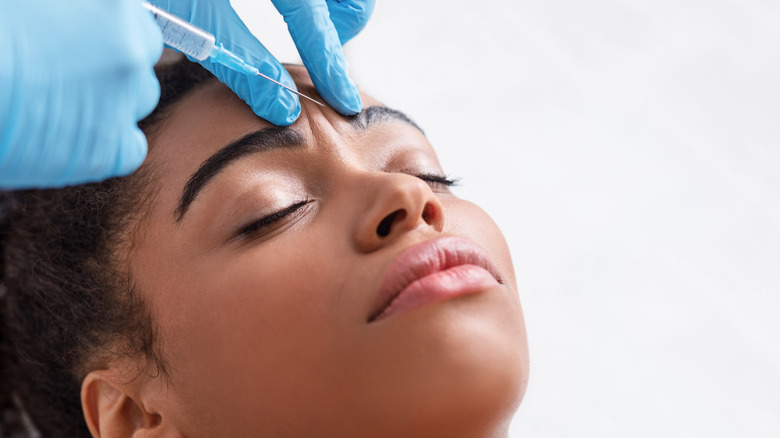Treating Wrinkles With Botox Might Be Better For You Than You Realize
Botox can smooth out wrinkles and facial creases, helping you look younger than your actual age. While this can certainly make you feel more confident, there may be other beneficial impacts of Botox to look forward to. In fact, researchers suggest it may dramatically affect certain aspects of your mental health.
A 2020 study published by Scientific Reports found lower rates of depression in those administered Botox. It was so effective that the researchers are moving into phase three clinical trials to decide if Botox injections can be administered as a viable treatment option for depression.
A 2021 study also published in the journal Scientific Reports, and by the same group of researchers, found a remarkable connection between Botox treatments and anxiety. Researchers concluded that patients who were administered Botox injections had significantly lower rates of anxiety than the placebo group. They further suggested that Botox had a protective effect against anxiety when patients were confronted with anxiety-provoking incidences, especially for those patients with anxiety disorders.
More research needs to be done
While much of the research on Botox up to now has focused on potential negative effects, the researchers of these two studies have wanted to take a different approach to learn about the potential off-label benefits. Dr. Ruben, a lead researcher of both the 2020 and 2021 study, told UC San Diego Health, "A large number of diverse adverse effects are being reported to the FDA and the main objective usually is to find those harmful side effects that had not been identified during clinical trials. However, our idea was different. Why don't we do the opposite? Why don't we find beneficial effects?"
While both of these studies point to improved mental health outcomes, more research needs to be done to determine the mechanisms by which Botox helps reduce depression and anxiety. Dr. Ruben and his team will continue holding clinical trials to further test efficacy in this promising new area of research. It's also important to note that the presence of beneficial effects doesn't mean you're not at risk for negative effects. It can help to know both the risks and benefits when speaking with your healthcare providers.


